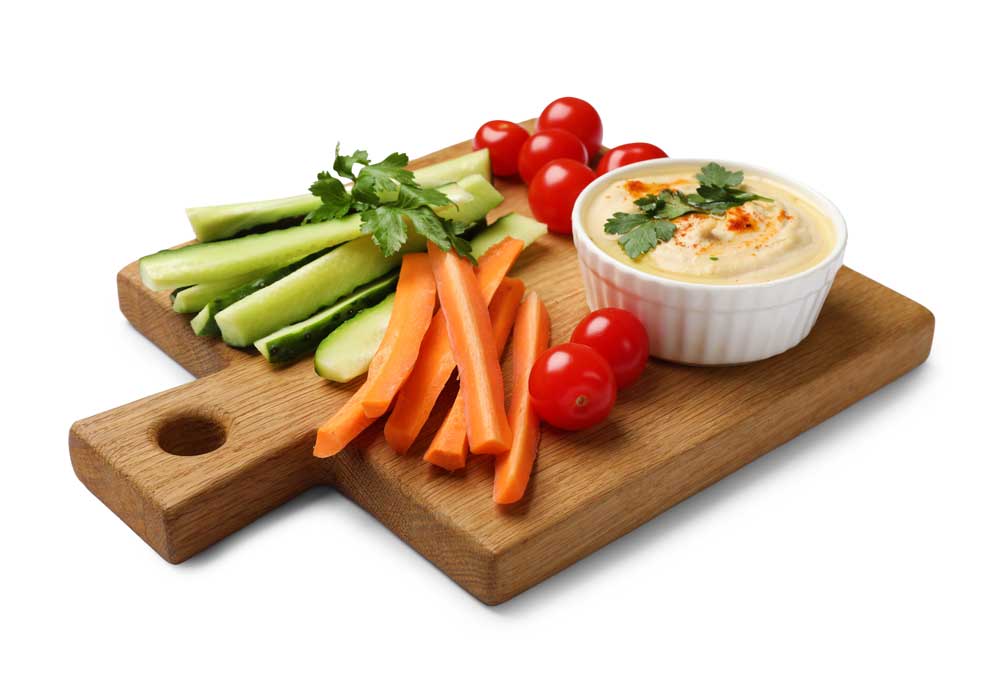StrongHER Nutrition Guide For Women Ft. Expert Tips From Dr Eileen Canday, Head of the Department of Nutrition & Dietetics at Sir H. N. Reliance Foundation Hospital and Research Centre

With the StrongHER Nutrition Guide, Her Circle aims to equip women with practical, scientifically supported methods for taking care of their bodies at every stage of life. This guide lays the groundwork for sustainable and thoughtful eating, whether your goal is to improve your fitness, balance your hormones, or just create a better lifestyle.
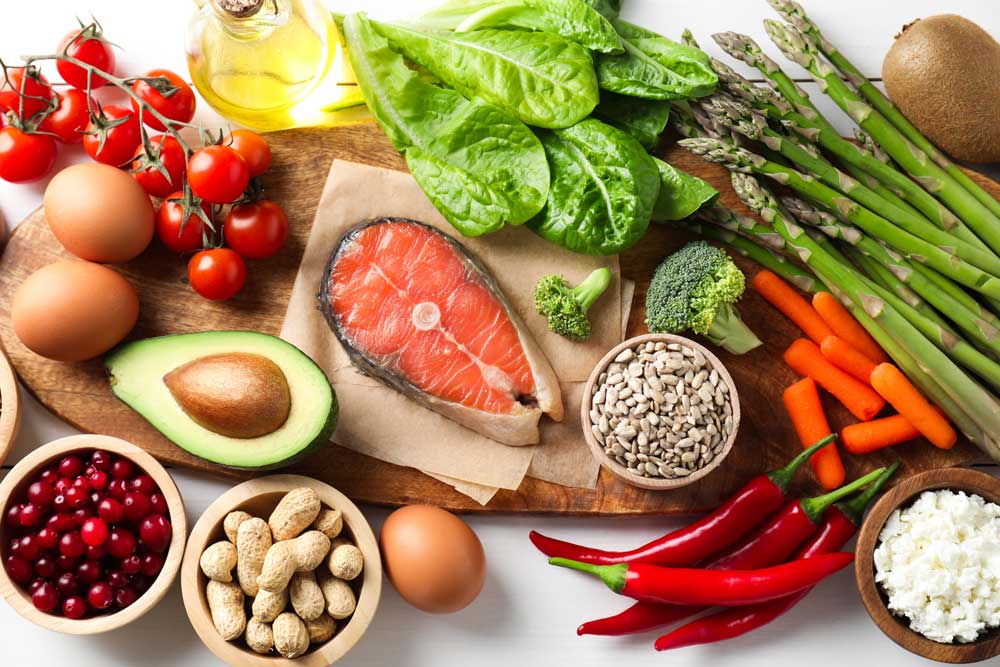
1. Understanding Nutrition Basics
Macronutrients
Proteins: Proteins serve as the foundation for many bodily functions, including muscle repair, immune function as well as overall health. Protein requirement can be met from whole food sources like milk and milk products, lentils, chicken, fish, and eggs should ideally be the primary sources. However, when dietary intake falls short, protein supplements can be considered based on individual needs.
Carbohydrates: Your body relies on carbohydrates as its main energy source. Often villainised, the key to make the most of your carbohydrates is to choose complex carbohydrates, such as whole grains, fruits, and vegetables, instead of refined options to obtain long-lasting energy.
Fats: Your brain needs these to work, produce hormones, and provide energy. Make sure to eat healthy fats from avocados, nuts, seeds, olive oil, and fatty fish.
Micronutrients
Iron: Iron is a mineral responsible to keep you energised and help move oxygen around your body. Get your iron from plenty of leafy greens, lentils, lean meats, and fortified cereals.
Calcium and Vitamin D: Keep your bones strong with a health intake of calcium and Vitamin D. The best sources? Dairy products, leafy greens, almonds, and by spending some time in the sun each day.
B Vitamins: B Vitamins can help your body turn food into energy and support your metabolism. Get your does of B Vitamins from eggs, dairy products, whole grains, and legumes.
Hydration
Water: Hydration is extremely crucial to digest food, make your skin glow, and keep you healthy- all in all it’s the key to keeping your body healthy inside out. Try to drink two to three litres every day to stay hydrated.
Electrolytes: These help your muscles and nerves work right. You can get them from natural foods like coconut water, leafy greens, and bananas.

2. Building a Balanced Plate
A balanced meal is essential for maintaining overall health and ensuring that your body gets the right mix of nutrients needed for optimal function.
Fruits and Vegetables: Half the Plate
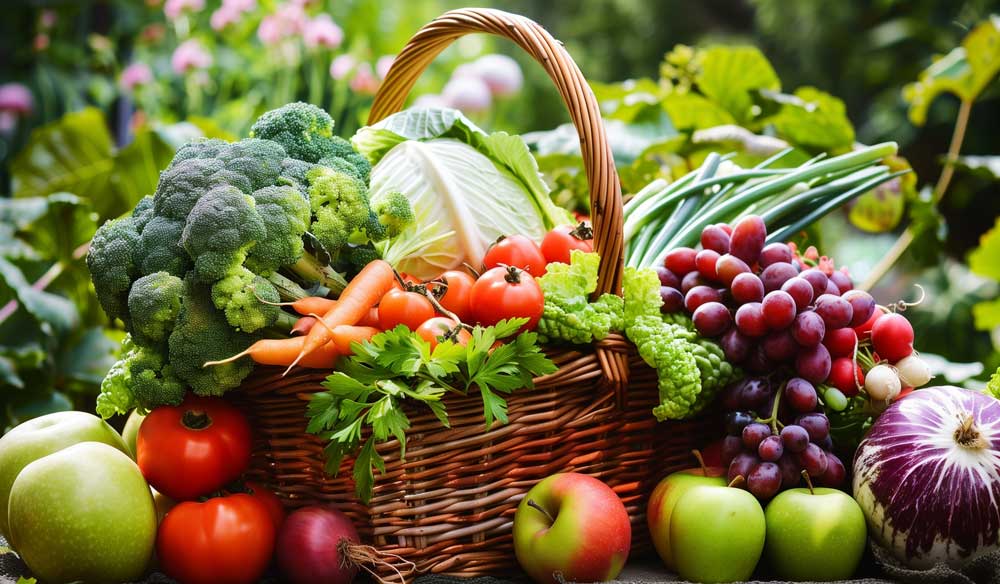
Vegetables are high in fibre, vitamins, and minerals but low in calories, making them essential for digestion, immune health, and disease prevention. Fruits add natural sweetness and provide necessary hydration, fibre, and antioxidants. Half of your plate should be filled with fruits and vegetables, prioritising a variety of colours to ensure a broad spectrum of vitamins, minerals, and antioxidants.
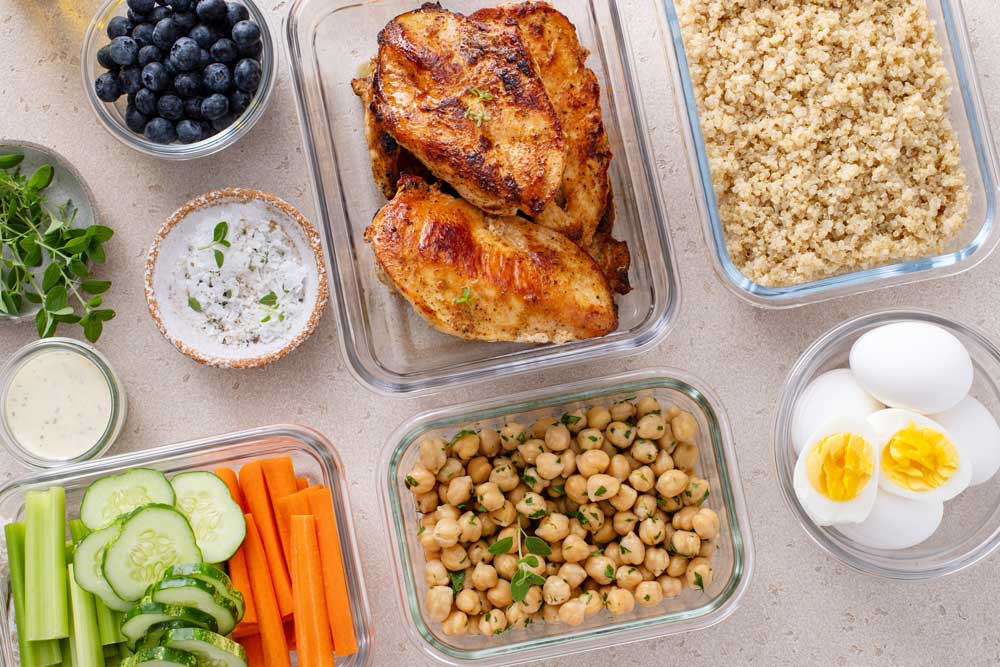
Protein: One-Quarter of the Plate
Protein plays a crucial role in women's health by supporting muscle repair, immune function, and the production of hormones and enzymes. It also helps maintain bone health, manage weight, and improve skin elasticity, especially during pregnancy and menopause. Ensuring adequate protein intake is essential for overall vitality and well-being. One quarter of your plate should be dedicated to lean protein sources, which include options such as milk and milk products, dals, pulses, chicken, fish, beans, lentils, tofu, eggs, and nuts.
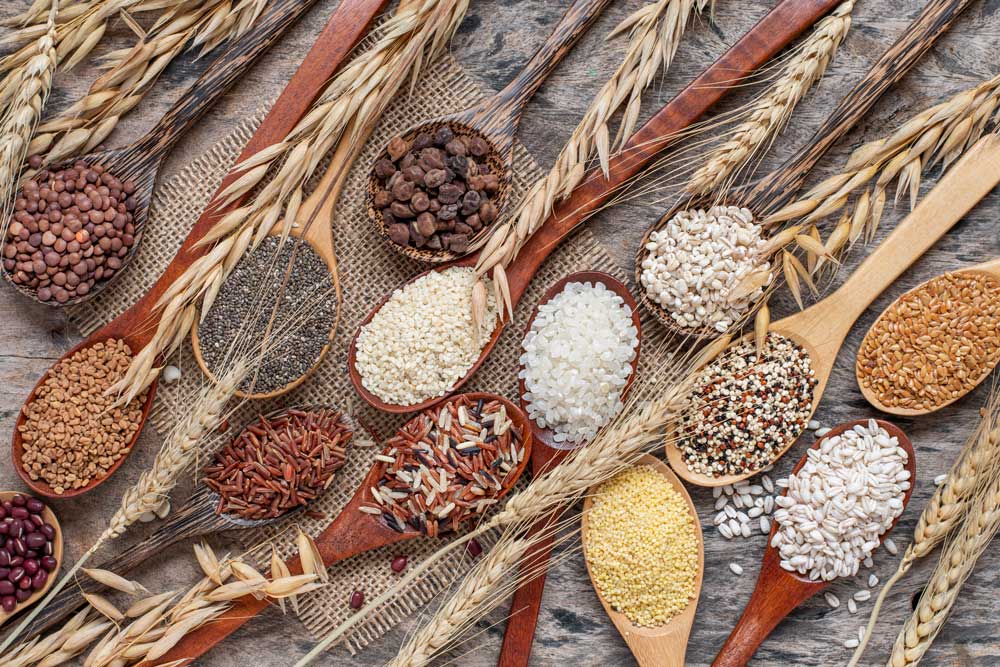
Grains: One-Quarter of the Plate
Whole grains provide sustained energy and are rich sources of B-vitamins, iron, and fibre, which play a vital role in metabolism, nerve function, and heart health. The fibre content also helps maintain digestive health and supports weight management. One-quarter of your plate should consist of grains, with at least half of the grains being whole grains. Examples include whole wheat, brown rice, quinoa, oats, and millets. These provide complex carbohydrates that offer sustained energy and fibre, which helps with digestion and maintaining stable blood sugar levels.
Healthy Fats: Moderation
Healthy fats support brain function, hormone production, and the absorption of fat-soluble vitamins A, D, E, and K. They also play a role in heart health by reducing inflammation and supporting cholesterol balance. Healthy fats should be included in small amounts to complement the meal. About 1-2 tablespoons of healthy fats can be included, such as those found in olive oil, avocados, nuts, and seeds.
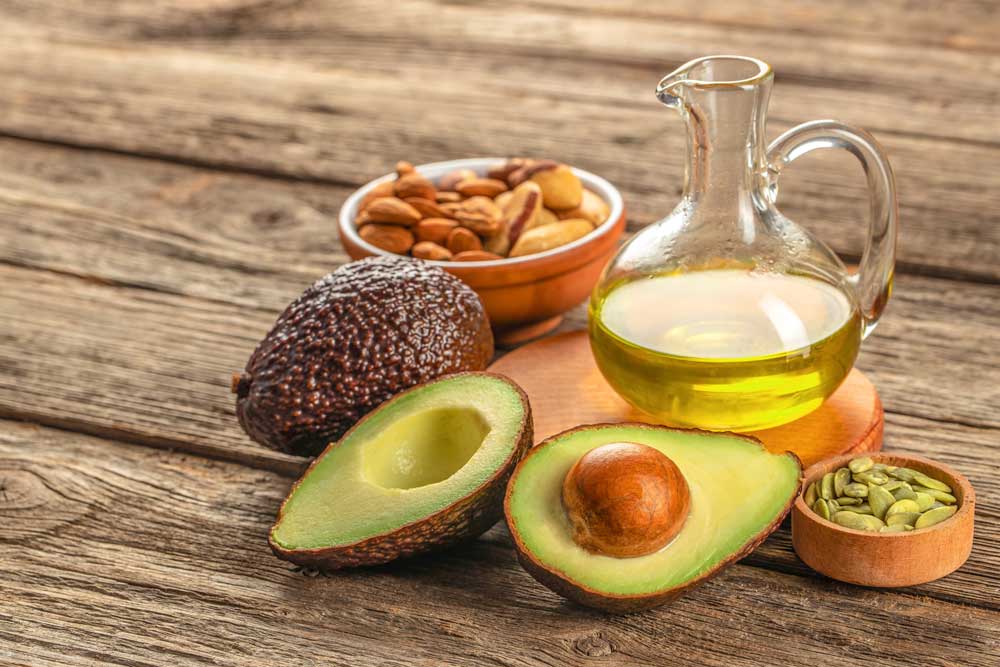
Hydration:
Water supports all bodily functions, including digestion, nutrient transport, temperature regulation, and detoxification. Adequate hydration helps maintain energy levels, focus, and overall vitality. While not part of the physical plate, hydration plays a critical role in health and well-being.
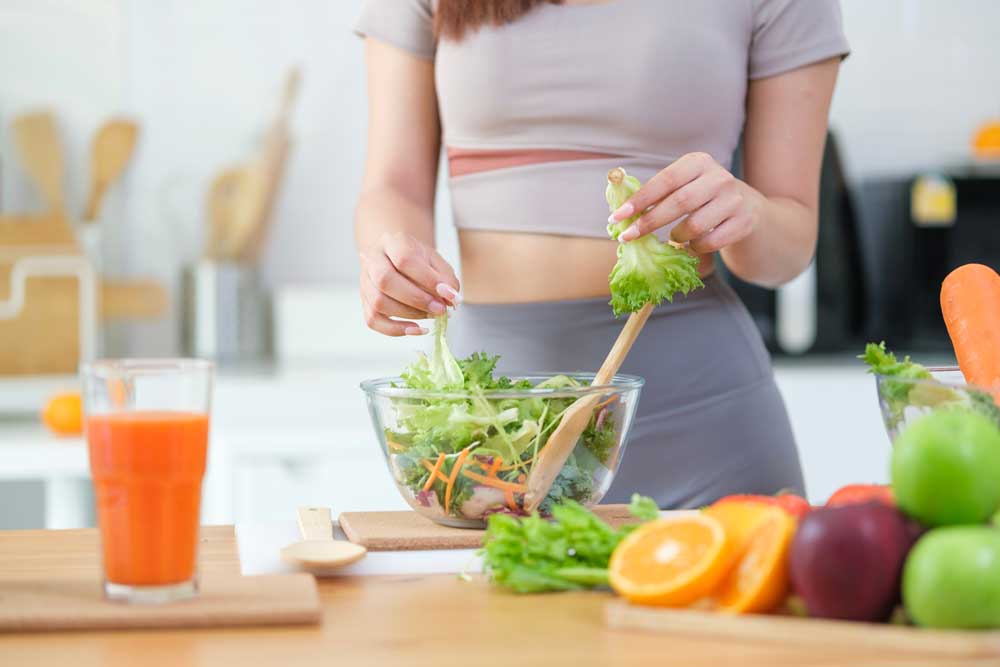
3. Nutrition for Different Life Stages
Hormones play a critical role in regulating many of the body's functions, from metabolism and energy levels to reproduction and mood. Nutrition significantly impacts hormonal balance, as specific nutrients help regulate hormone production, metabolism, and function.
Adolescence
During puberty, a surge in hormones such as estrogen and progesterone signals the onset of menstruation. The body is undergoing significant changes, and proper nutrition is key to supporting this process.
• Iron: As menstruation begins, many young women become at risk of iron deficiency. Iron-rich foods like leafy greens, beans, lentils, and lean meats are essential to support healthy red blood cells and prevent fatigue.

• Zinc: Plays a role in the regulation of estrogen and progesterone and is found in foods like pumpkin seeds, chickpeas, and lean meats.
• Evening Primrose: Evening Primrose oil, packed with gamma-linolenic acid (GLA), helps relieve premenstrual cramps, enhance skin hydration, and reduce dryness. The GLA in evening primrose oil is also thought to reduce inflammation and minimise scarring caused by acne, which is often seen in adolescent girls
Reproductive Years:
During the reproductive years, women experience regular menstrual cycles regulated by fluctuating levels of estrogen and progesterone. Hormonal balance is crucial for regular periods, fertility, and overall health. Good nutrition during this time can help manage PMS symptoms and support fertility.
• Magnesium: Supports the regulation of blood sugar and can help alleviate PMS symptoms such as cramps, mood swings, and bloating. Found in spinach, almonds, and dark chocolate.
• B Vitamins: Help balance estrogen levels and are essential for energy metabolism. Foods rich in B vitamins include whole grains, eggs, and leafy greens.
• Promote fertility by improving circulation and reducing oxidative stress. Additionally, rosemary enhances cognitive function, digestion, and stress management, contributing to overall well-being.
Pregnancy:
During pregnancy, hormones such as estrogen, progesterone, and human chorionic gonadotropin (hCG) increase significantly to support foetal development, regulate the pregnancy, and prepare the body for childbirth.

• Folate (Vitamin B9): Crucial for foetal brain development and preventing birth defects. Found in leafy greens, lentils, and fortified cereals.
• Iron and Calcium: As blood volume increases, iron and calcium are essential for the development of the baby and the mother’s health. Sources include fortified cereals, dairy, leafy greens, and legumes.
Menopause:
Menopause is characterised by the permanent cessation of menstruation due to a significant drop in estrogen and progesterone levels. Women often experience symptoms such as hot flashes, bone loss, and mood changes.
• Calcium and Vitamin D: Help maintain bone health and prevent osteoporosis, which is common after menopause due to lower estrogen levels. Sources include dairy, fortified plant milks, and fatty fish.
• Phytoestrogens: These helps ease menopause symptoms by mimicking estrogen in the body. Foods rich in phytoestrogens include soy, tofu, flaxseeds, and chickpeas.
• Omega-3 Fatty Acids: Help reduce inflammation and support heart health, which is more important after menopause. Sources include fatty fish, chia seeds, and walnuts.
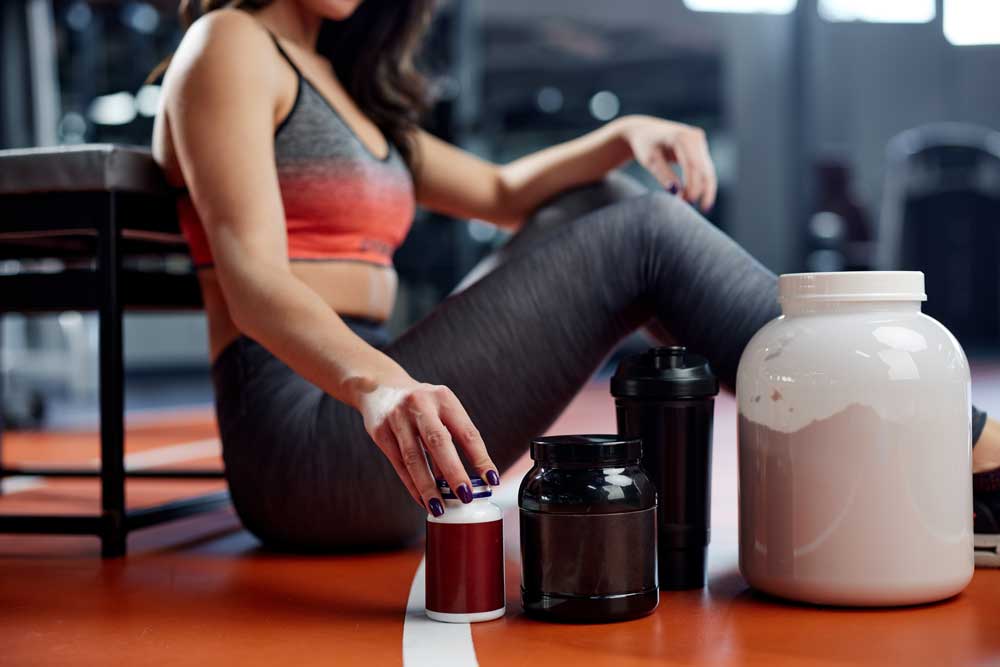
4. Fitness-Focused Nutrition
For optimal performance, pre-workout meals should include a combination of carbohydrates and protein-rich foods, and these should be belonging to a slow-absorbing nature to sustain energy throughout the workout. Examples include milk, paneer, yogurt, fruits like apple, pear, citrus fruit, berries, oatmeal with fruits, whole grain toast with peanut butter, or a granola bar for a quick boost. Post-workout, focus on fast-absorbing protein and carbs that help in quick recovery post workout to aid muscle recovery. These include sources eggs, whey protein smoothie, buttermilk, whey-based granola bars, banana, mango, and sweet potato. Choosing the right foods at the right time enhances strength, endurance, and overall performance. Here are some protein sources that can help support your exercise and workout goals:

∙ Whey Protein for muscle recovery: This is one of the most common and easily absorbed protein powders. It’s derived from dairy, so it’s not suitable for those who are lactose intolerant or following a vegan diet. Whey protein is high in branched-chain amino acids (BCAAs), which are great for muscle repair and recovery which can be taken to improve protein intake in the diet.
∙ Plant-Based Proteins especially for lactose intolerant: For vegans or those with dairy sensitivities, plant-based protein powders made from sources like pea, hemp, soy, brown rice, or a blend of these are a good option. While plant-based proteins may be lower in certain essential amino acids compared to whey, many products are now formulated to provide a balanced amino acid profile.
∙ Egg White Protein: For those who aren’t vegan but prefer not to consume dairy, egg white protein is a great option as it’s low in fat and highly bioavailable.
Pregnancy and Lactation-Specific Proteins:
For pregnant or breastfeeding women, there are some protein powders specifically designed to meet the nutritional needs during these stages. These products often contain additional nutrients such as folic acid, DHA (for brain development), iron, calcium, and other vitamins and minerals that are important for maternal and foetal health.
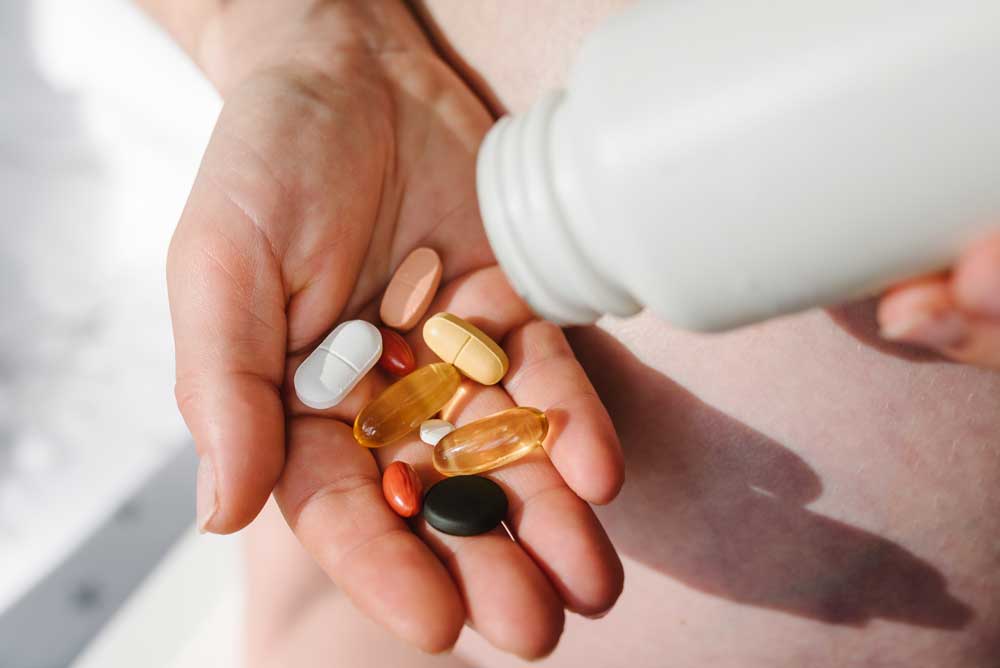
5. Supplements & Superfoods-
Iron: Women, especially those who menstruate, need more iron than men. Blood loss during menstruation can lead to iron deficiency, which may result in fatigue or anaemia. Women of reproductive age, pregnant women, and those with heavy periods may require iron supplements or iron-rich foods like spinach, red meat, or fortified cereals.
Calcium: Calcium is crucial for bone health. Women are at higher risk of osteoporosis, particularly post-menopause when estrogen levels drop. Women over the age of 30, particularly after menopause, may need additional calcium, often paired with vitamin D for better absorption, to maintain bone density.
Folic Acid: Folic acid is essential for foetal development during pregnancy and can prevent birth defects of the brain and spine, neural tube defects. Women who are planning to become pregnant or are pregnant should take folic acid supplements, typically starting before conception and continuing through early pregnancy.
Omega-3 Fatty Acids: Omega-3 fatty acids support heart health, reduce inflammation, and are important for brain health. Women who are vegetarians can opt for walnuts and flaxseed as a source of omega-3 or may benefit from omega-3 supplements
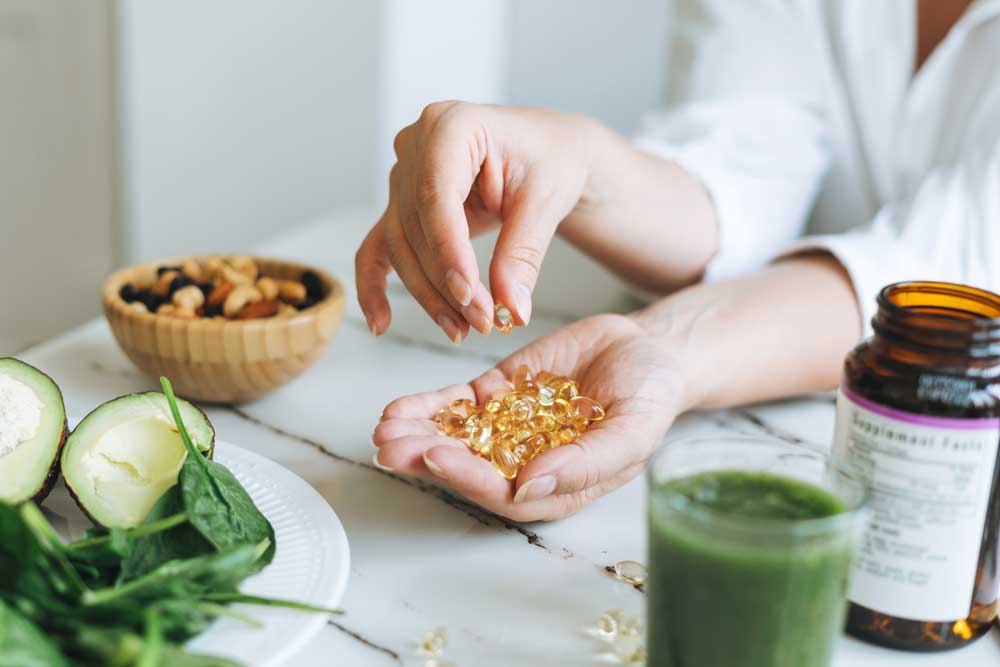
Magnesium: Magnesium helps with muscle function, nervous system health, and regulating blood sugar levels. It can also reduce the symptoms of PMS, like cramps and mood swings.
Vitamin B12: Essential for nerve function and the production of red blood cells. A deficiency can result in fatigue and anaemia. Vegans, vegetarians, and older women may be at risk of B12 deficiency and may need to supplement, as it is primarily found in animal products.
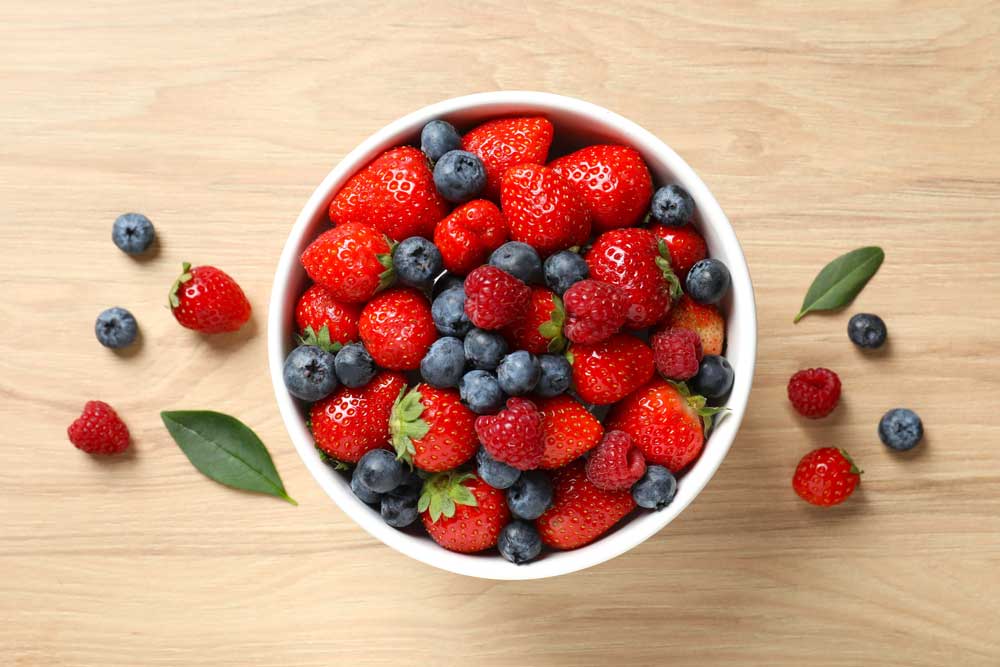
Superfoods for Women
A well-balanced diet enriched with superfoods can provide essential nutrients that support a woman's overall health and well-being. Berries like blueberries and strawberries are packed with antioxidants and vitamins that help reduce oxidative stress and inflammation. Leafy greens are excellent sources of fibre, vitamins, and minerals, promoting strong bones, improved digestion, and a resilient immune system. Chia seeds, loaded with omega-3 fatty acids, protein, and fiber, contribute to heart health and digestive wellness. Turmeric, known for its active compound curcumin, possesses powerful anti-inflammatory properties that may aid in joint health and overall inflammation reduction. Incorporating these superfoods into daily meals can be a natural and effective way to boost health.

Easy And Healthy Food Swaps That Are Great For You
Snacking can be a great way to fuel your body between meals, but choosing the right snacks is essential for maintaining energy, supporting health, and preventing unwanted weight gain.
• Greek Yogurt with Berries and Nuts: The combination of yogurt with antioxidant-rich berries and nuts, which are rich in Vitamin E that provides a perfect balance of healthy fats, fibre, and antioxidants, supporting skin health and immune function.
• Chia Seed Pudding with Fresh Fruits: Chia seeds are a good source of fibre and anti-inflammatory compounds, promoting digestion and heart health. When paired with fresh fruits, this pudding becomes a powerhouse of antioxidants, vitamins, and natural sweetness, making it a nourishing and delicious choice.
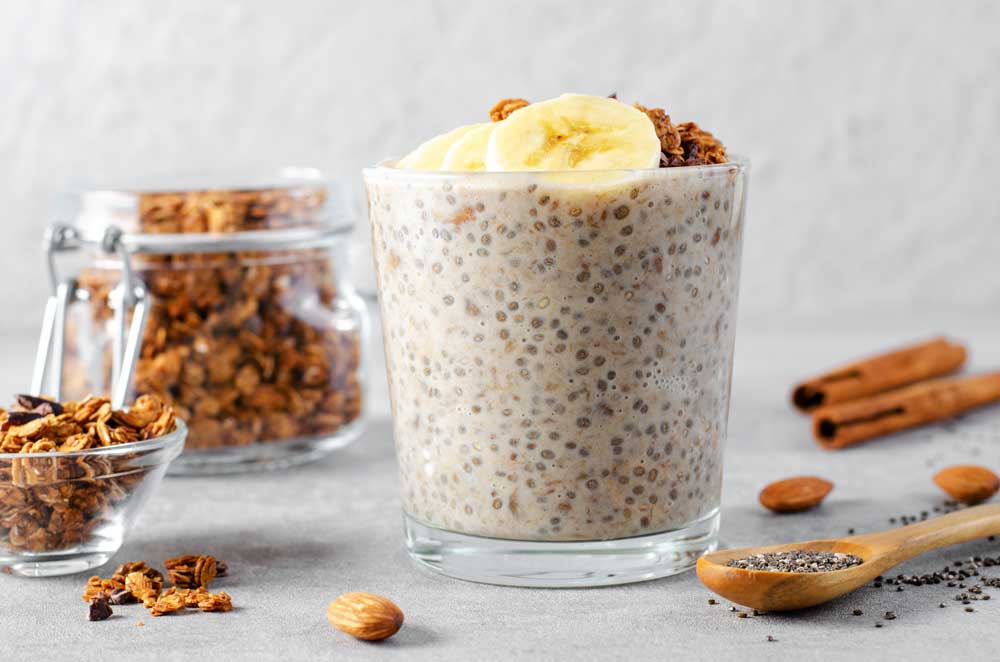
• Fruit Slush: A fruit slush is a refreshing summer treat that not only cools you down but also provides a natural boost of hydration. Packed with essential fibres, vitamins, and minerals from fresh fruits, it supports digestion, enhances skin health, and keeps energy levels stable throughout the day.
• Ragi Chips with Hung Curd Dip: Ragi chips are a low-calorie, high-fibre snack, while hung curd provides protein and probiotics, enhancing gut health and adding flavour.
• Sprouted Moong Salad: Sprouted moong beans are rich in protein, fibre, and antioxidants.
• Hummus and Vegetable Sticks: Hummus made from chickpeas is a great source of protein and fibre, while hummus offers additional protein and healthy fats. The carrot sticks provide fibre and vitamin A, creating a balanced, satisfying snack.
